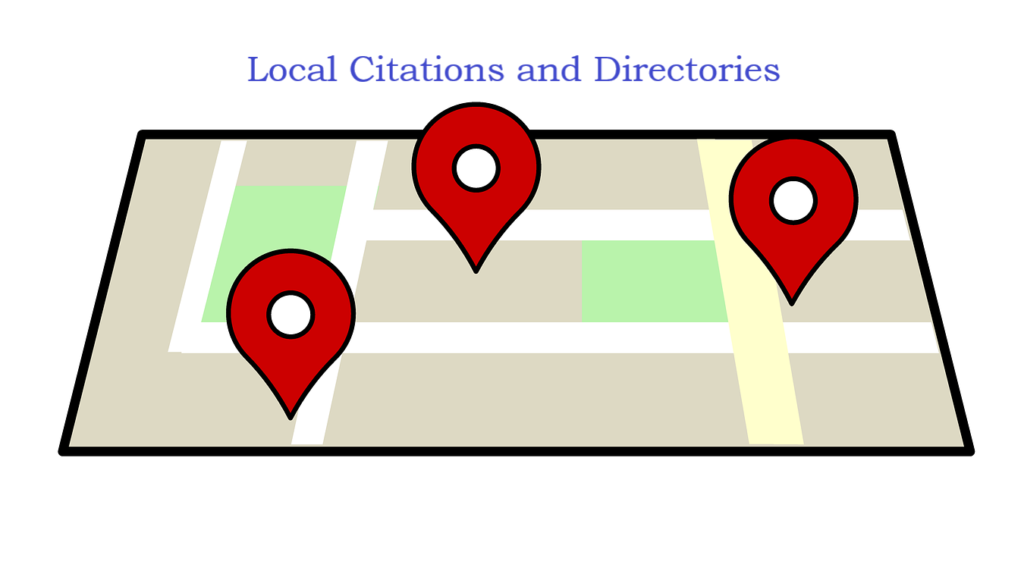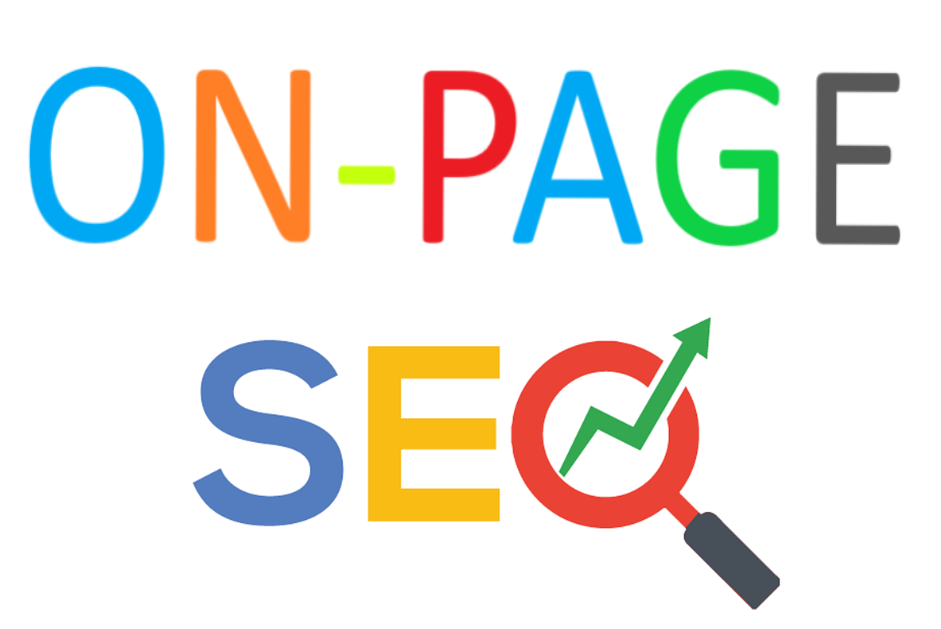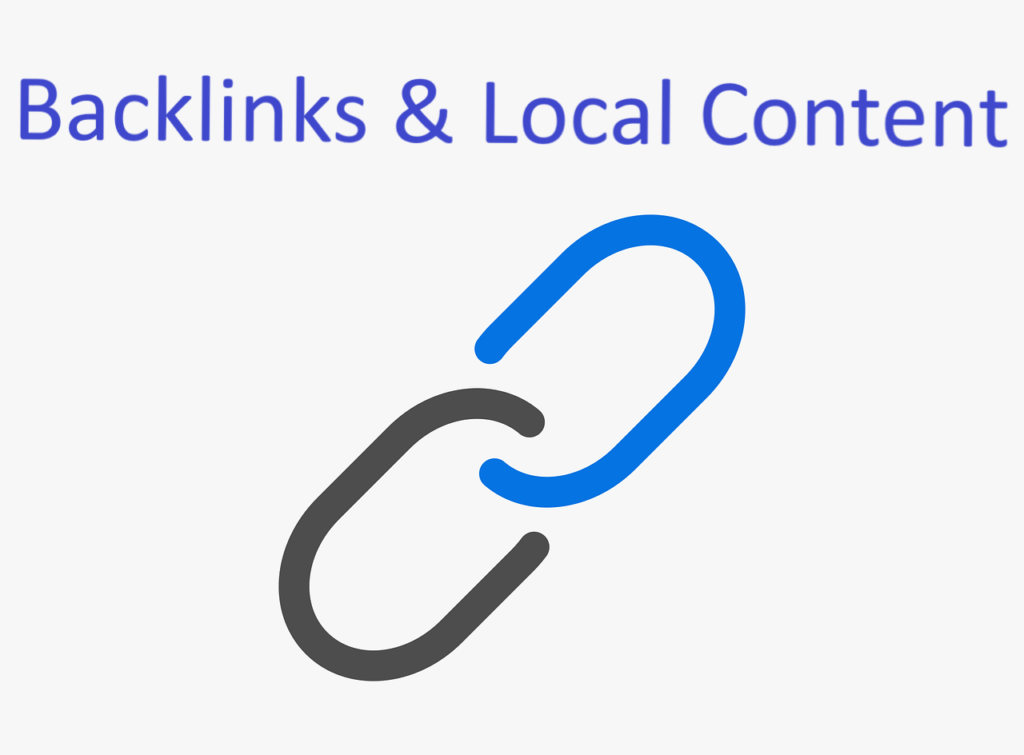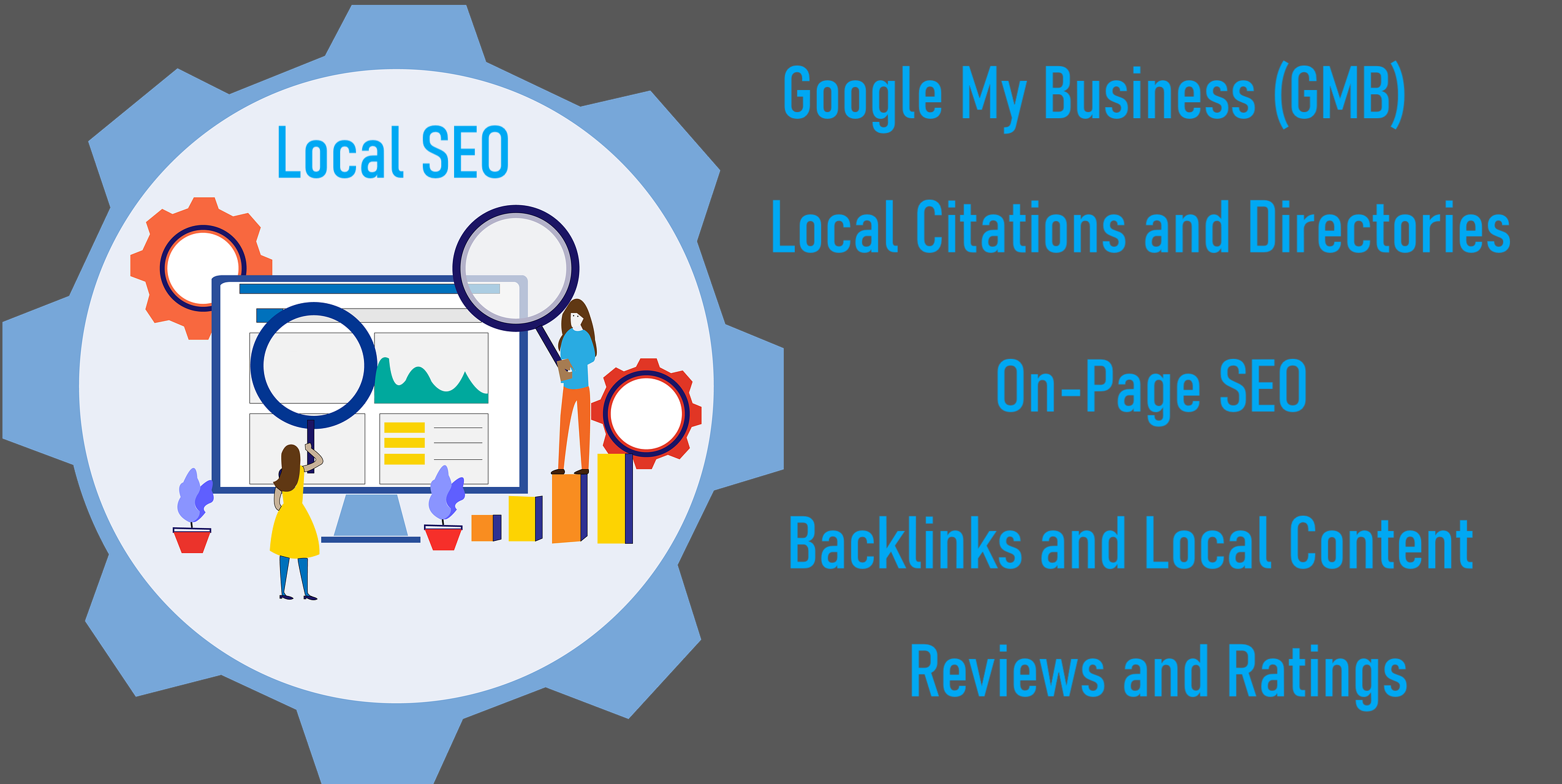In today’s competitive digital landscape, having a robust online presence is essential for businesses, especially those targeting local markets. Local SEO (Search Engine Optimization) plays a crucial role in enhancing your visibility in local search results, driving traffic to your website, and attracting more customers to your physical location. But what exactly is Local SEO, and how can you harness its power to benefit your business?
This comprehensive guide will explore the key components and actionable strategies to improve your Local SEO efforts. Whether you’re a business in SEO Hobart, SEO Darwin, or seeking SEO services in Chelmsford, understanding and implementing effective Local SEO strategies can significantly impact your success. From optimizing your Google My Business profile and building consistent local citations, to performing detailed SEO audits in Dubai and leveraging the expertise of an agenzia SEO Roma, we cover everything you need to know to excel in local search.
We will also delve into niche-specific SEO needs, such as SEO for orthodontists and consultant SEO Clermont Ferrand, and highlight valuable tools like free SEO API and blazing SEO promo code to enhance your SEO practices. By the end of this guide, you will have a clear roadmap to boost your local search rankings, attract more local customers, and grow your business, whether you’re in SEO agency Darwin, SEO agentur Ulm, or any other location.
By the end of this blog, you will have a clear understanding of the steps you need to take to improve your local search rankings, attract more customers, and grow your business within your local community. Whether you are new to Local SEO or looking to refine your existing strategies, this guide provides valuable insights and practical tips to help you succeed. Let’s dive in and unlock the potential of Local SEO for your business!
Table of Contents
What is Local SEO?
Local SEO is the practice of optimising your online presence to attract more business from relevant local searches. These searches take place on search engines like Google, Bing, and Yahoo. A local search typically includes a location or “near me” query, such as “coffee shop near me” or “best pizza in New York.”
Why is Local SEO Important?
1. Increased Online Visibility: Local SEO helps your business appear in local search results, Google Maps, and local business directories. This increased visibility drives more traffic to your website and physical location.
2. Targeted Traffic: It attracts potential customers who are actively searching for products or services you offer in your area, leading to higher conversion rates.
3. Competitive Advantage: By optimising for local search, you can outperform competitors who are not leveraging Local SEO, thus capturing a larger share of the local market.
4. Enhanced Credibility: Appearing in local search results and business directories enhances your business’s credibility and trustworthiness.
Key Components of Local SEO
To effectively optimise your local SEO, it is crucial to understand and implement its key components. These components work synergistically to improve your local search rankings and ensure that your business appears in relevant local searches.
1. Google My Business (GMB)
Google My Business is a free tool that allows you to manage how your business appears on Google Search and Maps. A well-optimised GMB profile is fundamental to local SEO success.
- Claim and Optimise: The first step is to claim your GMB listing. Ensure all information is accurate, complete, and up-to-date, including your business name, address, phone number, website, business hours, and service area.
- Categories and Attributes: Select the most relevant categories for your business. Google allows you to choose a primary category and additional categories to describe your business. Attributes provide more details about your business, such as “outdoor seating” for restaurants.
- Photos and Videos: Upload high-quality photos and videos to showcase your business, products, services, and premises. Visual content engages users and can influence their decision to visit your business.
- Posts and Updates: Regularly update your GMB profile with posts about promotions, events, news, and offers. This keeps your profile fresh and engaging for potential customers.

2. Local Citations and Directories
Local citations are mentions of your business name, address, and phone number (NAP) on other websites and directories. Consistent and accurate citations enhance your local search visibility.
- Consistency is Key: Ensure your NAP information is consistent across all platforms, including your website, social media profiles, and local business directories. Inconsistent information can confuse search engines and potential customers.
- Local Listings: List your business on popular local directories such as Yelp, Yellow Pages, and TripAdvisor. Also, consider industry-specific directories relevant to your business.
- NAP Audit: Regularly audit your citations to ensure accuracy. Use tools like Moz Local or BrightLocal to manage and monitor your local citations.

3. On-Page SEO
On-page SEO involves optimising individual web pages to rank higher and earn more relevant traffic in search engines. For local SEO, this includes incorporating local keywords and optimising your website’s structure.
- Local Keywords: Perform keyword research to identify relevant local keywords and phrases. Incorporate these keywords naturally into your website content, meta titles, descriptions, headers, and URLs. Tools like Google Keyword Planner, SEMrush, and Ahrefs can assist in finding local keywords.
- Location Pages: If your business operates in multiple locations, create dedicated location pages for each one. These pages should include specific information about each location, such as address, phone number, business hours, and unique services offered.
- Mobile Optimization: Ensure your website is mobile-friendly, as a significant portion of local searches are conducted on mobile devices. A responsive design, fast loading times, and easy navigation are critical for a positive mobile user experience.
- Local Content: Develop content that resonates with your local audience. Blog posts about local events, news, and community activities can attract local traffic and engage your audience.

4. Reviews and Ratings
Online reviews and ratings are critical for building trust and credibility. They also play a significant role in local search rankings.
- Encourage Reviews: Ask your satisfied customers to leave positive reviews on your GMB listing and other review platforms. Make it easy for them by providing direct links to your review profiles.
- Respond to Reviews: Engage with your customers by responding to their reviews, both positive and negative. Thank them for their feedback, address any concerns, and demonstrate your commitment to customer satisfaction.
- Monitor Reviews: Regularly monitor your reviews across various platforms. Use tools like Google Alerts or review management software to stay updated on new reviews.

5. Backlinks and Local Content
High-quality backlinks and locally relevant content can significantly boost your local search rankings.
- Local Backlinks: Acquire backlinks from reputable local websites, such as local news sites, community blogs, and business associations. These backlinks signal to search engines that your business is relevant and authoritative in your local area.
- Local Content: Create content that appeals to your local audience. This could include blog posts about local events, news, and community activities. Hosting or participating in local events can also generate local buzz and backlinks.
Additional Strategies for Local SEO
- Conduct a Local SEO Audit: Regularly assess your local SEO efforts to identify gaps and areas for improvement. Use tools like Moz Local, BrightLocal, and Whitespark to conduct comprehensive local SEO audits.
- Optimise for Voice Search: With the increasing use of voice search, optimise your content for conversational queries and long-tail keywords. Consider the natural language people use when speaking rather than typing their queries.
- Leverage Social Media: Engage with your local audience on social media platforms. Share local news, events, and promotions to foster community connections and drive local traffic.
- Utilise Local Schema Markup: Implement schema markup to provide search engines with more information about your business. This can improve your chances of appearing in rich snippets and enhance your local search visibility.
By focusing on these key components, you can effectively optimise your business for local search and attract more local customers. Consistent effort and regular updates are essential to maintaining and improving your local SEO performance. Stay informed about the latest trends and best practices to ensure your business continues to thrive in the competitive local market.
Actionable Strategies to Improve Local SEO
Improving your Local SEO requires a strategic approach that involves optimising various elements of your online presence. Here are detailed actionable strategies to help boost your local search rankings and attract more local customers.
1. Conduct a Local SEO Audit
A thorough audit helps you understand where your current local SEO efforts stand and identify areas for improvement.
- Audit Your Google My Business (GMB) Listing: Ensure all information is accurate and complete. Check categories, attributes, photos, and reviews.
- Website Analysis: Evaluate your website’s mobile-friendliness, loading speed, and on-page SEO elements. Use tools like Google’s Mobile-Friendly Test and PageSpeed Insights.
- Citation Audit: Check the consistency of your NAP information across all listings and directories. Tools like Moz Local and BrightLocal can help identify inconsistencies.
- Competitor Analysis: Analyze the local SEO strategies of your top competitors. Look at their GMB profiles, citations, and backlink profiles to identify opportunities.
2. Optimise for Voice Search
Voice search is becoming increasingly popular, especially for local searches. Optimising for voice search involves understanding the natural language and question-based queries users employ.
- Use Conversational Keywords: Focus on long-tail keywords and phrases that mimic natural speech patterns. For example, instead of “best pizza NYC,” consider “Where can I find the best pizza in New York City?”
- Create FAQ Pages: Develop content that answers common questions related to your business. Use clear, concise language and include local keywords.
- Local Intent: Ensure your content addresses local search intent. Incorporate phrases like “near me,” “in [city],” and other location-specific terms.
3. Leverage Social Media
Social media platforms are powerful tools for engaging with your local audience and boosting your local SEO efforts.
- Engage with Your Community: Regularly post updates, promotions, and local news. Respond to comments and messages to build relationships with your audience.
- Use Location Tags: Tag your location in posts and stories to increase visibility to local users.
- Collaborate with Local Influencers: Partner with local influencers to reach a broader audience. Influencer endorsements can enhance your credibility and attract local customers.
- Promote Events: Use social media to promote and share events. Encourage attendees to tag your business and share their experiences.
4. Utilize Local Schema Markup
Schema markup (structured data) helps search engines understand your website’s content and can improve your chances of appearing in rich snippets.
- Local Business Schema: Implement local business schema on your website to provide search engines with detailed information about your business, such as address, phone number, business hours, and reviews.
- Event Schema: Use event schema to mark up local events hosted or sponsored by your business. This can enhance the visibility of your events in search results.
- Review Schema: Add review schema to your website to display star ratings and reviews in search results, increasing your click-through rate.
5. Host Local Events
Hosting or participating in local events can boost your local visibility and generate valuable backlinks.
- Community Engagement: Organize events such as workshops, charity drives, or local meetups. Promote these events on your website, social media, and local event directories.
- Event Partnerships: Partner with other local businesses or organizations to co-host events. This can increase your reach and foster community connections.
- Event Listings: List your events on local event directories, community calendars, and social media platforms.
6. Optimize Your Website for Local SEO
Your website is a crucial element of your local SEO strategy. Ensure it is fully optimized for local search.
- Local Keywords: Incorporate local keywords into your website content, meta titles, descriptions, headers, and URLs. Focus on keywords that include your city, neighbourhood, or service area.
- Location Pages: Create dedicated pages for each location if your business operates in multiple areas. Include detailed information about each location, such as address, phone number, business hours, and unique services offered.
- Mobile Optimization: Ensure your website is responsive and loads quickly on mobile devices. A significant portion of local searches are conducted on mobile, making this a critical factor for local SEO.
- Local Content: Regularly publish blog posts and articles relevant to your local audience. Topics could include local events, news, and community highlights.
7. Build Local Backlinks
Backlinks from reputable local websites signal to search engines that your business is authoritative and relevant in your local area.
- Local Sponsorships and Partnerships: Sponsor local events, sports teams, or charities. These sponsorships often come with backlinks from the organisation’s website.
- Guest Blogging: Write guest posts for local blogs and publications. Include a link back to your website in your author bio or within the content.
- Local Directories: Ensure your business is listed in local directories and industry-specific directories. These listings often provide valuable backlinks.
8. Encourage and Manage Reviews
Online reviews are critical for local SEO and can significantly influence potential customers’ decisions.
- Ask for Reviews: Encourage satisfied customers to leave positive reviews on your GMB listing, Yelp, Facebook, and other review platforms. Make it easy by providing direct links.
- Respond to Reviews: Actively respond to both positive and negative reviews. Thank customers for their feedback and address any concerns or complaints promptly.
- Monitor Reviews: Use tools like Google Alerts or review management software to stay on top of new reviews. Regularly monitor your reviews to ensure you are aware of what customers are saying about your business.
Implementing these actionable strategies will help you enhance your local SEO efforts and attract more local customers. Remember that local SEO is an ongoing process that requires regular monitoring, updating, and optimization. Stay informed about the latest trends and best practices to ensure your business remains competitive in the local market. By focusing on these strategies, you can build a strong local presence and drive more targeted traffic to your business.
Resources and Links
Google My Business (GMB)
- Google My Business Help Center: Official support and guidelines from Google.
- Google My Business Help Center
- Moz Guide to Google My Business: Comprehensive guide on setting up and optimizing your GMB profile.
- Moz Guide to Google My Business
- BrightLocal’s Google My Business Audit: Tips for auditing and optimizing your GMB profile.
- BrightLocal GMB Audit
Local Citations and Directories
- Whitespark’s Local Citation Finder: Tool for finding and managing local citations.
- Whitespark Local Citation Finder
- Moz’s Guide to Local Citation Building: Strategies for building and maintaining local citations.
- Moz Local Citation Guide
- BrightLocal’s Top Local Citation Sites: List of important citation sites for various countries.
- BrightLocal Top Citation Sites
On-Page SEO
- Ahrefs’ On-Page SEO Guide: Comprehensive guide to on-page SEO techniques.
- Ahrefs On-Page SEO Guide
- Moz’s On-Page SEO Cheat Sheet: Checklist for optimizing web pages.
- Moz On-Page SEO Cheat Sheet
- Backlinko’s On-Page SEO Guide: Detailed tips and best practices for on-page SEO.
- Backlinko On-Page SEO Guide
Reviews and Ratings
- Google My Business Reviews Help: Official Google guidelines on managing reviews.
- Google My Business Reviews Help
- Yelp for Business Owners: Managing Yelp reviews and ratings.
- Yelp for Business Owners
- BrightLocal’s Guide to Online Reviews: Comprehensive guide to getting and managing online reviews.
- BrightLocal Online Reviews Guide
Backlinks and Local Content
- Ahrefs’ Guide to Building Local Backlinks: Strategies for acquiring local backlinks.
- Ahrefs Local Backlinks Guide
- Moz’s Link Building Guide: Best practices for building backlinks.
- Moz Link Building Guide
- Neil Patel’s Local Content Marketing Tips: Effective strategies for creating local content.
- Neil Patel Local Content Tips
Conducting a Local SEO Audit
- Moz Local SEO Guide: A comprehensive guide on local SEO audits.
- Moz Local SEO Guide
- BrightLocal’s Local SEO Checklist: A detailed checklist for conducting local SEO audits.
- BrightLocal SEO Checklist
- Whitespark’s Local Citation Finder: A tool for auditing local citations.
- Whitespark Local Citation Finder
Optimizing for Voice Search
- Backlinko’s Voice Search SEO Study: In-depth research on optimizing for voice search.
- Backlinko Voice Search SEO Study
- Search Engine Land’s Voice Search Optimization Tips: Practical tips for voice search optimization.
- Search Engine Land Voice Search Tips
Leveraging Social Media for Local SEO
- Hootsuite’s Social Media Marketing Guide: A guide on using social media for local businesses.
- Hootsuite Social Media Marketing
- Sprout Social’s Guide to Social Media for Local Businesses: Strategies for leveraging social media for local SEO.
- Sprout Social Guide
Utilizing Local Schema Markup
- Google’s Structured Data Markup Helper: A tool to help you implement schema markup.
- Google Structured Data Markup Helper
- Schema.org Local Business Markup: Guidelines for local business schema markup.
- Schema.org Local Business
Hosting Local Events
- Eventbrite’s Guide to Hosting Local Events: Tips and strategies for hosting successful local events.
- Eventbrite Hosting Guide
- Meetup’s Event Planning Tips: Practical advice for organizing local events.
- Meetup Event Planning Tips
Conclusion
Mastering Local SEO is essential for businesses looking to attract and engage customers within their local communities. By focusing on the key components such as optimizing your Google My Business profile, ensuring consistent local citations, implementing on-page SEO strategies, managing reviews and ratings, and building local backlinks, you can significantly enhance your online visibility.
Utilizing actionable strategies such as conducting thorough Local SEO audits, optimizing for voice search, leveraging social media, using local schema markup, and hosting local events will further boost your local search rankings and drive targeted traffic to your business. The resources and multimedia recommendations provided offer valuable guidance and tools to help you implement these strategies effectively.
Staying updated with the latest trends and continuously optimizing your local SEO efforts will ensure that your business remains competitive in the local market. By making Local SEO a priority, you can connect with more local customers, build a strong community presence, and ultimately, grow your business.
Remember, local success starts with being found. Embrace these strategies and watch your business thrive in your local area.











